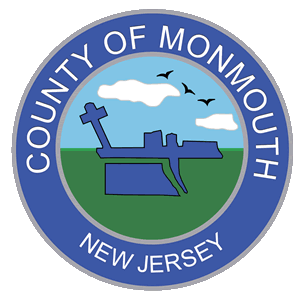By KATHY CHANG
Staff Writer
KEYPORT — Over a hot plate of pancakes, eggs, bacon and hash browns, Congressman Frank Pallone (D-Monmouth, Middlesex) chatted candidly with local media, addressing topics from bipartisan efforts in recent legislation on the opioid epidemic to his push for sports betting in the state.
Pallone, who represents the 6th District that covers most of Middlesex County and a good portion of Monmouth County, spent his morning of Sept. 12 highlighting his busy year with legislation in Washington, D.C., the election season and news around the Garden State at the IHOP in Keyport.
The veteran congressman will face Republican challenger Brent Sonnek-Schmelz, Libertarian Judi Shamy and another candidate, Rajit Malliah, in the general election in November.
The congressman, whose hometown is Long Branch, said funding at times stalls movement of bills.
For example, Pallone, a top Democrat on the House Energy and Commerce Committee, led the party’s efforts to advance bipartisan legislation — Comprehensive Addiction and Recovery Act (CARA) — to address the nationwide opioid epidemic through the House of Representatives.
The legislation was approved in the U.S. Senate and signed into law by President Barack Obama on July 22.
However, Pallone said there was very little funding that was attached to the legislation, which expands the availability of naloxone and improves prescription drug monitoring programs to help states monitor and track prescription drug diversion.
The legislation also shifts resources towards identifying and treating incarcerated people who are suffering from addiction, rather than just relying on punishment, and prohibits the Department of Education from including questions about the conviction of an applicant for the possession or sale of illegal drugs on the Free Application Federal Student Aid (FAFSA) financial aid form.
Pallone said the biggest problem is prescription drugs nationwide, and he hopes to mandate $1 billion by appropriation in the 21st Century Cures Act legislation for the CARA legislation.
The 21st Century Cures Act is not only a patient’s bill, but a jobs bill for the biopharmaceutical industry. It appropriates funding for discovery, development and delivery of lifesaving and life-improving therapies and transforms the quest for faster cures.
Pallone said there is a positive outlook on the bill moving forward, which could provide the needed funding for the CARA legislation.
The congressman touched upon the proposed parking fee hikes at Sandy Hook, in which his office met with National Park Service officials on Sept. 16; Sandy recovery efforts four years later; public safety; transportation; gun control; and the closing and revitalization process of Fort Monmouth in Eatontown.
He spoke about bills that were proposed in the aftermath of the water crisis in Flint, Michigan, where the water was found to have been contaminated and declared unsafe to drink in 2014.
Pallone co-sponsored the proposed AQUA (Assistance, Quality and Affordability) Act that amends the Safe Drinking Water Act to significantly increase funding authorization levels for local communities with water infrastructure deficiencies and recent proposed legislation that would establish a grant program to provide assistance to local educational agencies for the replacement of drinking water fountains manufactured prior to 1988.
He said funding has stalled water infrastructure improvements.
“People are still drinking out of plastic water bottles in Flint,” said Pallone.
Another hot topic was sports betting in the Garden State. The congressman said despite court rulings favoring the professional sports leagues on upholding the sports betting ban law in the state, Pallone said he believes sports betting would help revive horse racetracks and the gaming industry as a whole in the state.
When asked if he would support the legalization of marijuana, Pallone said he would be in favor. He said only recently his mindset has changed on the controversial matter after learning that the drug’s impacts are not as harmful [as previously thought] to people’s health.

